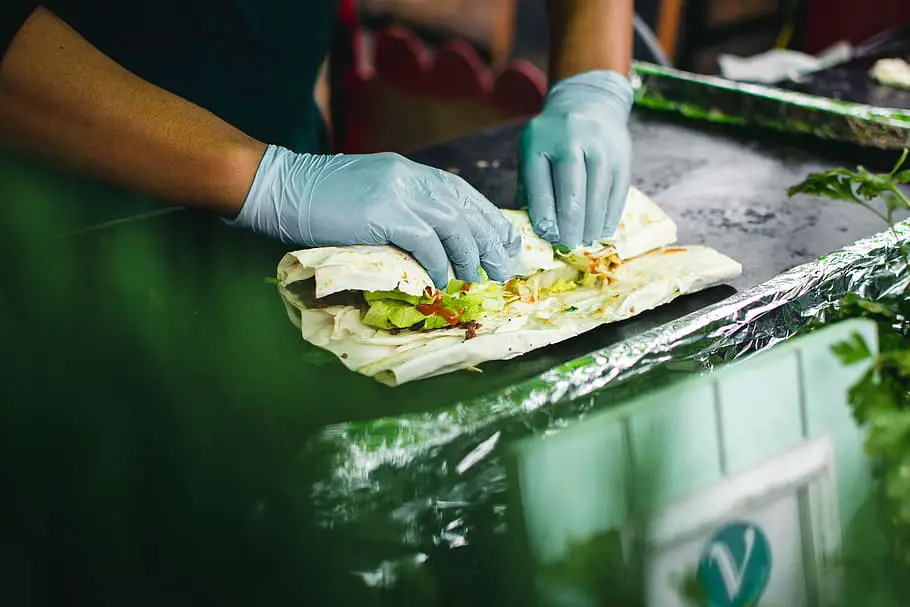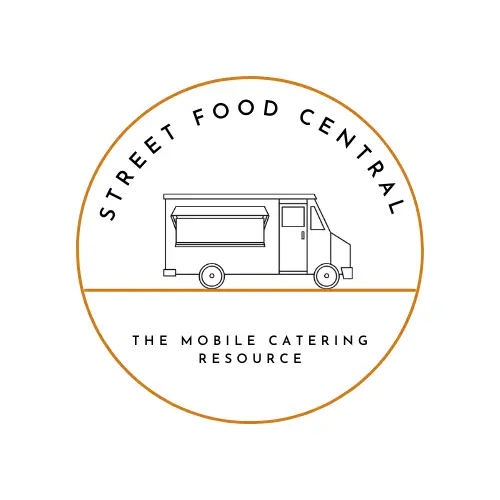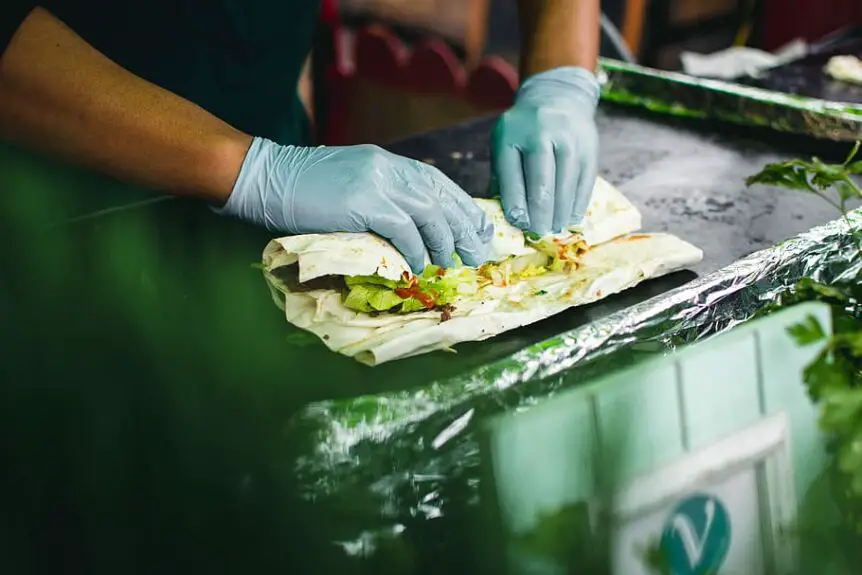Find out how food trucks prepare, store, and cook their food

A food truck is pretty much a commercial kitchen on wheels and has the capacity to serve hundreds, if not thousands of people per day at all types of events such as street food markets, fairs, and festivals.
So where do food trucks prepare their food?
Depending on its size, food trucks can prepare their food within the truck on the day of the event, at home (if there is adequate space), or in commercial premises the day or evening before.
In this article, I will discuss the different ways food trucks prepare, store, and keep cold food for events.
Can you prepare food in a food truck?
The short answer is yes and to some extent no. Firstly by law food trucks must adhere to the standards and legislation of their given state in order to prepare, cook, and serve food inside a food truck.
However, It also all depends on the size of the food truck. If for example space is limited then preparing large quantities of food for a fair or festival can be challenging. This is not so much of an issue for large food trucks.
Food trucks that are smaller get around the size limitations in 3 ways.
- They pitch a gazebo behind the food truck allowing for an extra 3m x 3m of space.
- Food trucks have a second commercial kitchen away from the event, where food is prepared the evening before.
- Food is prepared and stored at home if the kitchen is big enough.
How do food trucks keep food cold?
Food trucks count as commercial kitchens so they will have all the necessary equipment to keep food cold, such as fridges and freezers. These will be retrofitted inside the food truck.
Food trucks also use cool boxes and cool chests, packed with ice to keep food cool, especially if it is a smaller truck and space is limited. However, cool boxes and chests are not advisable to store food for long periods.
Where do food trucks store their food?
Food trucks store the food in a number of ways depending on what type of food you are talking about. For example, canned foods such as tinned tomatoes can be stored in the food truck.
However, food such as meat or fresh vegetables will have to be stored in temperature-controlled fridges. This will often be done inside the food truck if it has an overnight power supply or if the food is being cooked that day. Food trucks also store food in commercial kitchens or at home.
Related articles:
Where do food trucks cook their food?
One of the USPs (unique, selling, point) of food trucks is that the food is cooked fresh in front of you and you will see this at numerous festivals and food fairs all over the place. People want fresh food, not something that has been cooked a day or so before.
Therefore food trucks will cook their food in the actual kitchen within the food on the day of the event.
However, food trucks will also pre-cook some of their food the day/night before to save time, especially at large events. This is done at home or in commercial kitchens.
For example, the chicken may be precooked the night before and then reheated with a sauce the next day. This is not feasible on the other hand for products such as burgers and hot dogs, which need to be cooked fresh.
Related articles:
Related questions
How do food trucks get water?
As a food truck if you are serving hundreds of people per day then you will need a reliable supply of hot and cold running water. This is for washing hands and utensils and this must also be done in separate sinks.
This is also a requirement of both the local Health Department in the US and the Food Standards Agency in the UK.
Food trucks, therefore, get their running water by having a retrofitted clean and dirty water tank attached to a plumbing system with hot and cold running water.
They will also hold spare water tanks for clean water and fill them up at the event if that facility is provided by the event organizer.

Related article:
How do food trucks get electricity?

Along with running hot and cold water food trucks also need the power to keep fridges running for cold food and hot plates and grilles to cook food and keep it warm.
Food trucks, therefore get their power from a number of sources:
- Diesel or petrol generators – Usually a minimum of 3000kws up to about 7000 kW in order to run all of the equipment.
- LPG gas-powered Generators – More environmentally friendly
- Large 125kva generators with 16amp and 32amp plug attachments – provided by the event organizer at large events such as festivals and fairs.
- Solar panels are attached to the roof of the food truck.
Related articles:
How much power does a food truck use?
To run a food truck you are looking at a minimum of 3000 watts or 25 amps to run basic equipment such as fridges, blenders, or microwaves.
However, it is suggested you get a generator with a bit more power, between 5000-7000 watts, if you intend to run multiple appliances, to give you that extra bit of capacity.
A good tip is, to get the right balance between gas-run and electrical-powered equipment, therefore your electrical power needs will be less.
Example:
Refrigerator = 400-1000 kW / 3.3-8 amps
Microwave = 750-1000-kW / 6.25-9.2 amps
Blender = 450-700 kws/3.3-5.8 amps
Soup kettle = 400-600 kW / 3.3-5 amps
Total = 2000- 3300 kW / 16.6-30amps
Conclusion
Food trucks are commercial food units on wheels and like restaurants can store, prepare, and cook their food within the truck.
Some smaller food trucks may have large commercial kitchens on hand or if space permits, use their home kitchen. This is often for larger events such as festivals or if the truck is on the small side and lacks the space.
Gavin D is the founder of Street Food Central and Tru Foo Juice Bar Co. and has worked in the mobile catering industry for over 7 years.

